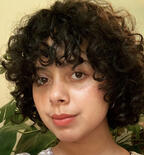Kelsey Henry
Kelsey’s dissertation, “Racing the Life Course: Antiblack Epistemes and Ethical Foreclosures in U.S. Child Development Science, 1830 - 1980,” examines how conflating Blackness with developmental disability became integral to the language and logic of white supremacy in the United States. She argues that child development science authorized this conflation by systematically coupling whiteness with developmental normality and Blackness with developmental abnormality in the nineteenth and twentieth centuries. Uniting scholarship on the “afterlives of slavery” with interventions in the history of science that emphasize the rarity of scientific revolutions, Kelsey studies the durability of nineteenth-century scientific theories of Black developmental incapacity - theories used to justify chattel slavery - in twentieth-century developmental psychology, child psychiatry, and pediatric medicine. Using archival methods and science studies methodologies, she explores the racial constitution and racializing effects of “race-neutral” developmental technologies (e.g. the pediatric growth chart, developmental screening tests) that were presented as universal but normed around white children. Subsequently, these metrics (mis)diagnosed Black developmental delays and misunderstood racism’s developmental impact on Black children. Her interventions are historical and theoretical, with applied value for clinicians and Black parents. Kelsey posits that theories and practices of child development have consistently doubled as theories and practices of race and racialization; child science has always been a racial science and must be historicized as such. Intervening in disability studies, she rewrites histories of developmental disability as a distinctly racial category and expands scholarship on the co-constitution of antiblack racism and ableism. Breaking new ground in Black studies on the unrequited promise of Black emancipation, Kelsey locates child development science as an understudied evidentiary source for withholding legal personhood, of which the capacity for “mature” adulthood is a prerequisite, from Black Americans. By revealing the racial biases embedded in evaluative tools for assessing developmental normalcy, Kelsey aims to interrupt the re-entrenchment of these biases as Black parents and children continue to interface with these metrics today.
Kelsey earned her B.A. from Wesleyan University in 2015 with High Honors in American Studies and Feminist, Gender, and Sexuality Studies. She received an M.A. from Yale’s Program in the History of Science and Medicine and will receive a graduate certificate in Women’s, Gender, and Sexuality Studies en route to her PhD. Her work is currently supported by the Charlotte W. Newcombe Dissertation Fellowship and she has previously received support from the Consortium for the History of Science, Technology, and Medicine Research Fellowship, the Ford Foundation Predoctoral Fellowship, Yale’s Dean’s Emerging Scholar Fellowship, and the Andrew W. Mellon Foundation. She has served as the Assistant Editor of Disability Studies Quarterly and the co-organizer of Yale’s Disability Studies Working Group, and currently serves as the lead host of the Disability History Association Podcast. Her work has been published in Gender & History and The Point and is forthcoming in Disability Studies Quarterly.
